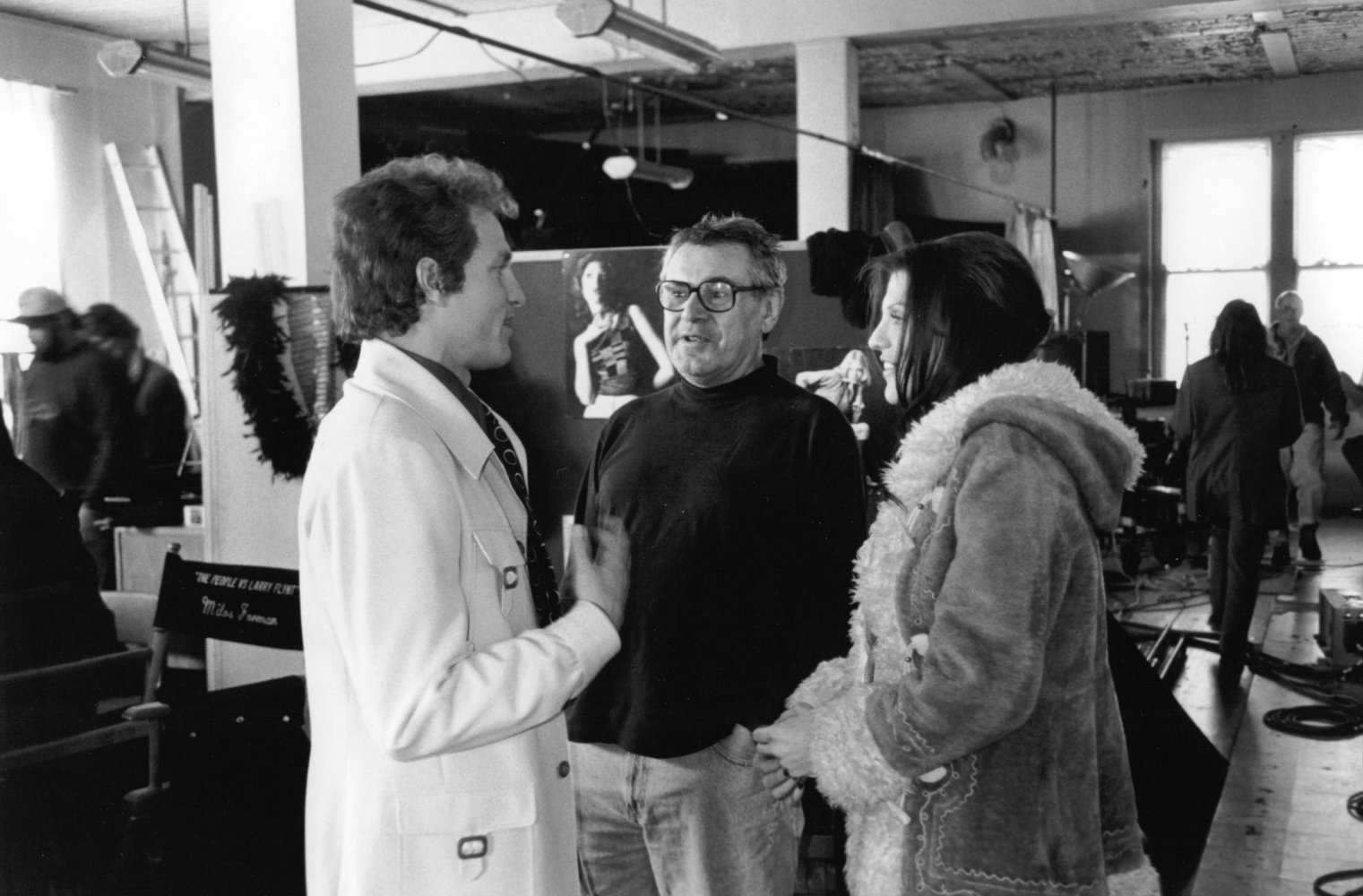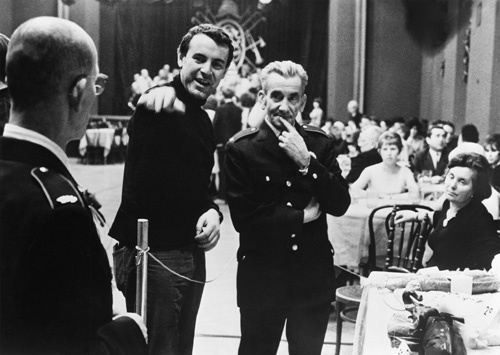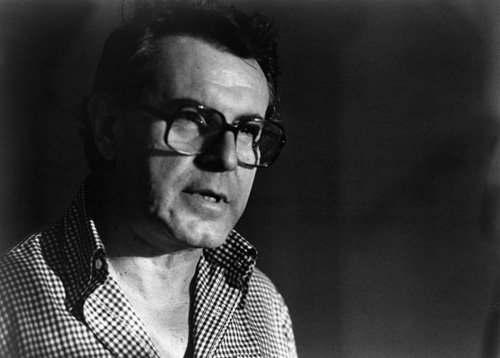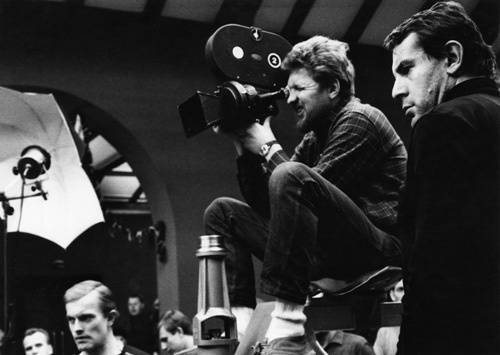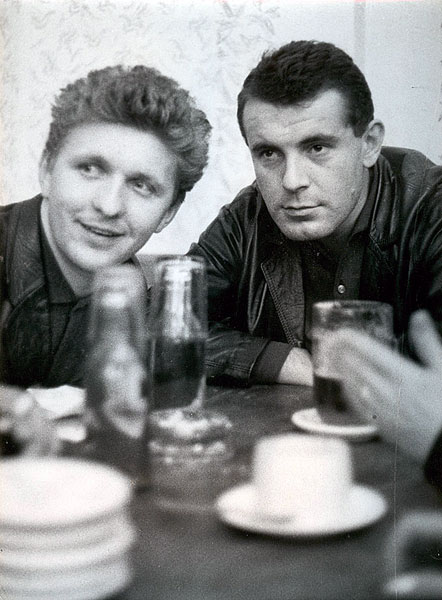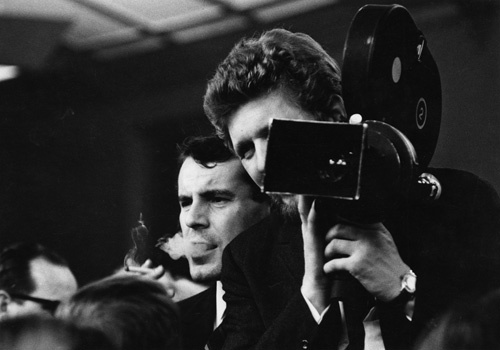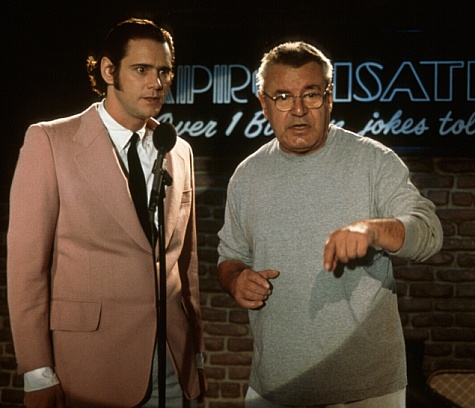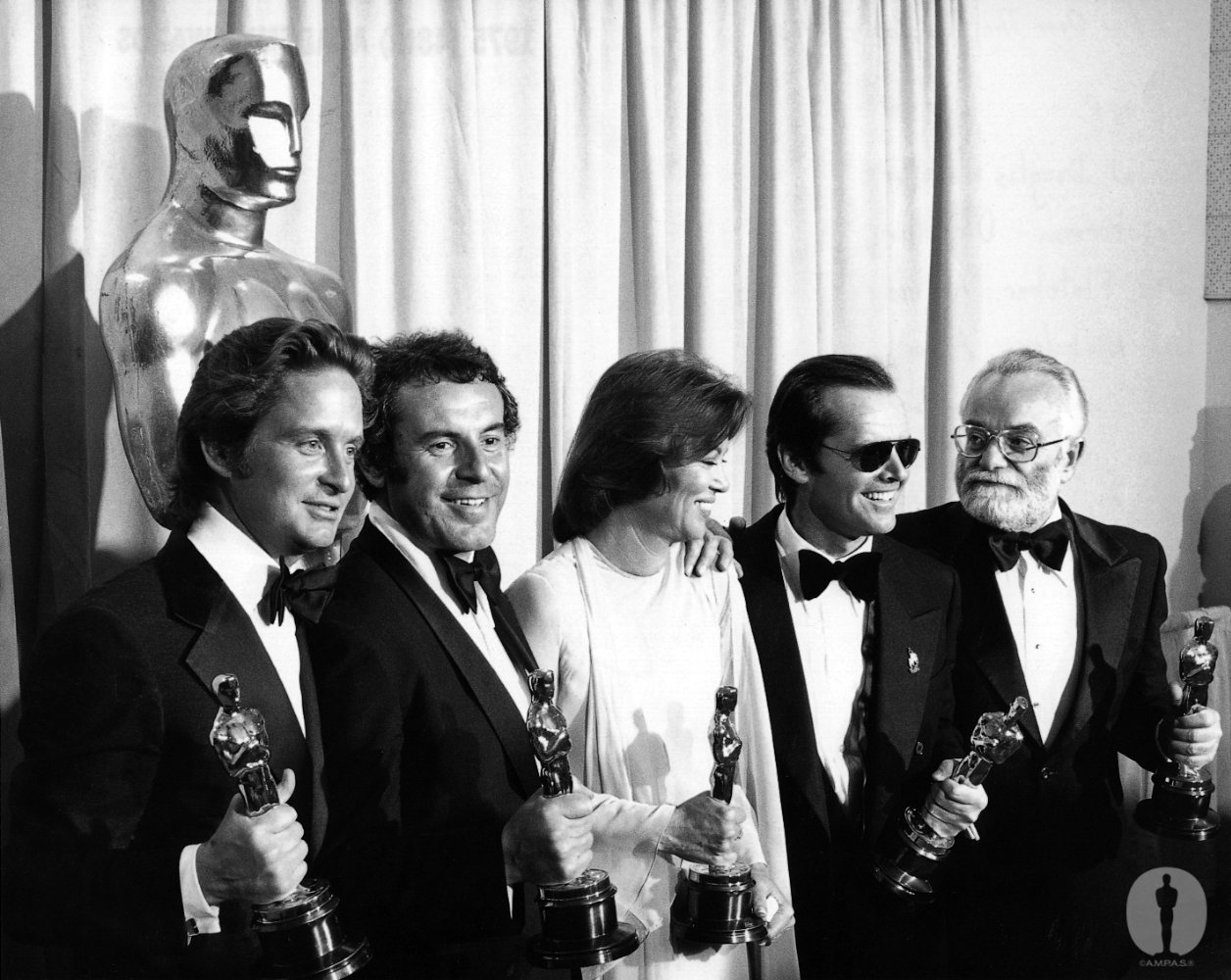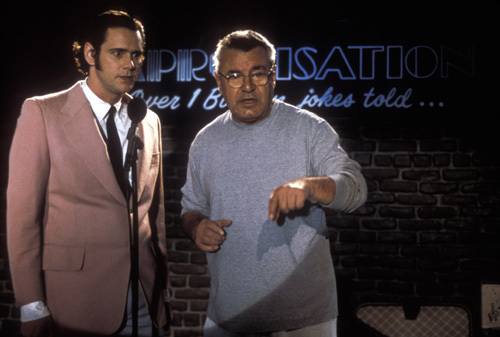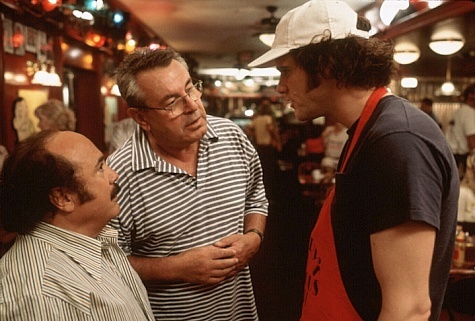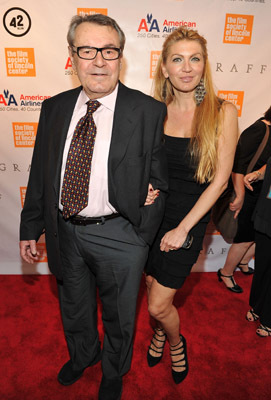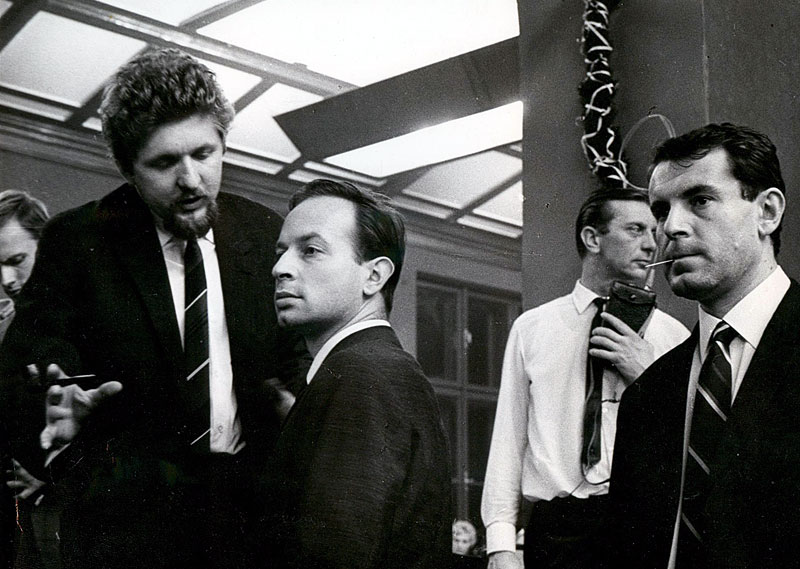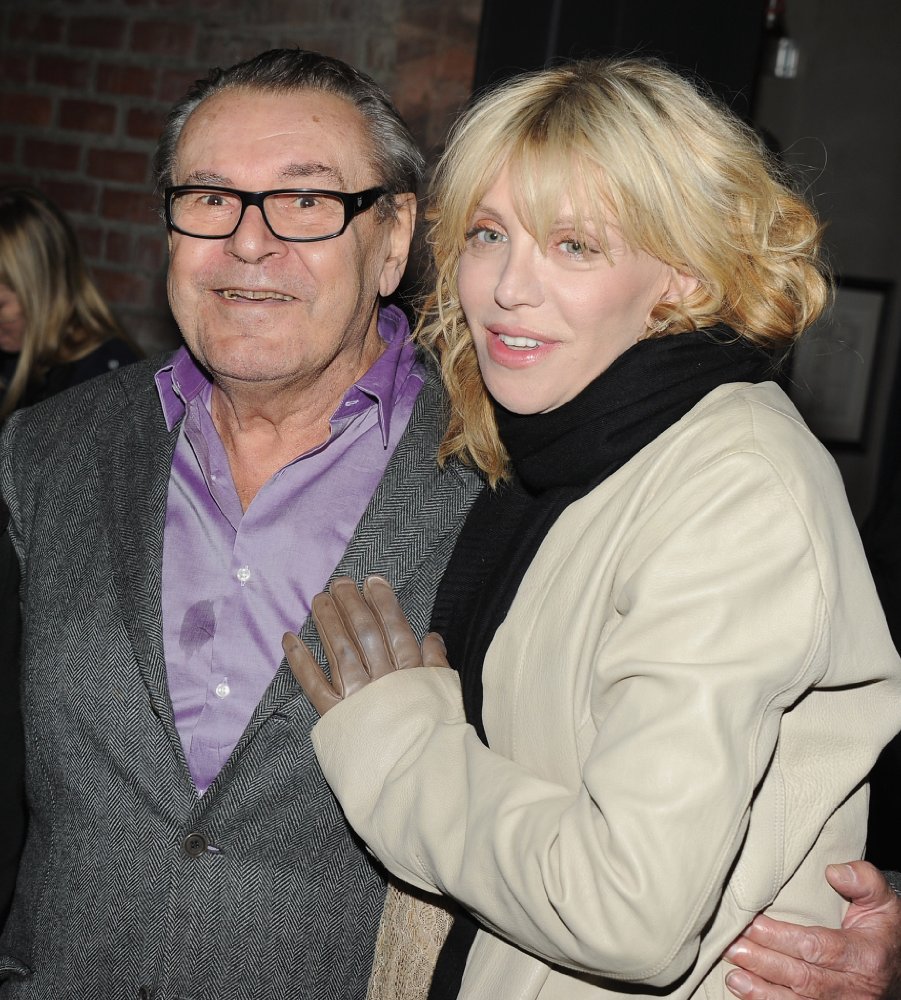
Milos Forman
Birthday: 18 February 1932, Cáslav, Czechoslovakia [now Czech Republic]
Birth Name: Jan Tomas Forman
Height: 178 cm
Milos Forman was born Jan Tomas Forman in Caslav, Czechoslovakia, to Anna (Svabova), who ran a summer hotel, and Rudolf Forman, a professor. During World War II, his parents were taken away by the Naz ...Show More
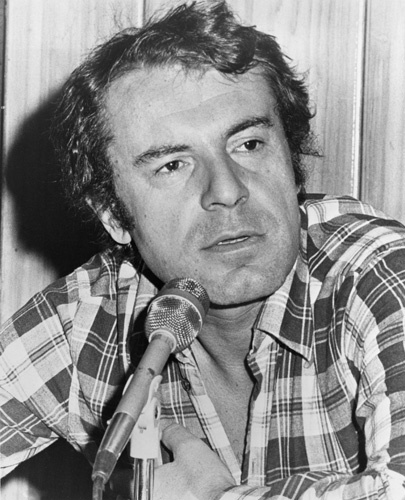
It's funny to realize, but in my relatively short life I have lived through six or seven different s Show more
It's funny to realize, but in my relatively short life I have lived through six or seven different social and cultural systems. First the Democratic Republic of Czechoslovakia, then the limited democracy before World War II, then the Nazi regime. After the Nazi regime there was a kind of democracy again for three years, then came the Stalinist regime, then the reformed Communist regime, and now I am living in a free country. Hide
The theatre is different from the movies, which is very right for the theatre, because you know when Show more
The theatre is different from the movies, which is very right for the theatre, because you know when the curtain goes up, that nothing is real, that everything is stylized. The tree is not a real tree, it's stylized. The language is stylized and must be stylized because you don't have editing. You have to write lines so that you can communicate to the audience everything so they will understand. It's stylized for that purpose. But film is very different because you see that everything is real. The trees are real, the buildings are real, the sky is real, so people better be real too and not stylized like on the stage. Hide
[on Valmont (1989)] We were in the middle of our script already when they announced their version, b Show more
[on Valmont (1989)] We were in the middle of our script already when they announced their version, based on the play. Of course we immediately learned they were rushing into it very fast. With the concept I had, we all knew I couldn't be faster. We couldn't beat them. So, I was expecting a call from the producers saying 'Sorry, Milos, we can't take the risk.' The call came. They asked me, 'Does it really bother you that another film is going to be made?' I said of course not. And I felt like, god, Hollywood is still crazy. That's good. Hide
[W]hen I was moonlighting on Czech TV as a moderator, introducing movies, in the early '50s. It was Show more
[W]hen I was moonlighting on Czech TV as a moderator, introducing movies, in the early '50s. It was live, so there was no chance to bleep politically undesirable words. Every utterance, even in supposedly spontaneous interviews, had to be scripted, approved by the censors, learned by heart and repeated verbatim on the air. When I was preparing to interview one Comrade Homola, a powerful Communist, I sent him questions, but didn't receive his answers. My boss, also a powerful party member, told me: "He is lazy! Write his answers for him, and remind him to learn them by heart." So I did. Comrade Homola arrived at the last moment. When the red light went on and I asked the first question, he reached into his pocket, took out my answers and started to read them, awkwardly and obediently - including my inadvertent grammatical mistakes. And thus, to my consternation, went the whole interview. In the control booth, my boss hit the roof. I was fired the next day for ridiculing a representative of the state. Hide
[on Jack Nicholson] The moment he begins to work, he becomes a servant: he knows the story, he knows Show more
[on Jack Nicholson] The moment he begins to work, he becomes a servant: he knows the story, he knows the film, he arrives each day prepared to perfection, he is interested in an excellent ambiance and he helps to create it. Hide
[on directing "The Little Black Book" on Broadway] I enjoyed our arguments about the text with Delph Show more
[on directing "The Little Black Book" on Broadway] I enjoyed our arguments about the text with Delphine Seyrig and Richard Benjamin during rehearsals. I enjoyed the whole thing, but then I had to admit that I wasn't a theatrical director. There are just a few directors - and Ingmar Bergman being one of the best - who are able to direct films as well as stage performances - and they are able to do it well. I'm not one of them. What I miss is the abstract imagination, which theatre definitely requires. I always have a feeling in the end that I'm holding a camera in my hand and that I'm being forced to look at the same shot for two hours and I have to choke back the urge to cry: 'Stop!'" Hide
[from his Oscar acceptance speech for One Flew Over the Cuckoo's Nest (1975)] I thank the Academy fo Show more
[from his Oscar acceptance speech for One Flew Over the Cuckoo's Nest (1975)] I thank the Academy for the company of the nominees they put me in - I'm very proud of that. When I want to think of what possible reasons I'm here now, I can find two: the first is that this year the Academy members recognised the fact that last year I spent more time in a mental institution than the others. And the second might be that, well, that America is still a very beautiful, hospitable and open country. Hide
On his twin sons: "Originally we were going to name the baby Andy, because I was doing a film about Show more
On his twin sons: "Originally we were going to name the baby Andy, because I was doing a film about Andy Kaufman. Then we learned we were having twins, and we said, OK, it will be Andy and Tony, after Andy's famous character, Tony Clifton. But then my son's wife gave birth to a daughter, and they named her Toni. I couldn't have a Tony, so we chose Jim. When you choose names for your children, you want to name them after somebody you like very much, so the name will always ring beautifully in your ears. And that was how I felt about Jim Carrey." Hide
[on Valmont (1989)] When I was in the film school in Prague, my professor of literature was a Franco Show more
[on Valmont (1989)] When I was in the film school in Prague, my professor of literature was a Francophile, and he was always suggesting that we read and study French literature. And he suggested 'Les Liaisons Dangereuses'. I was 18 or 19 years old. Oh my god, how much I loved that book. I wouldn't dare, of course, to say to anybody, but I thought it would be a wonderful, erotic movie. And then, many, many years later, I was asked to see 'Les Liaisons Dangereuses' on the stage, and to make the film with the Christopher Hampton adaptation. I went to see it, and I was sort of surprised how what I saw differs from my memory of the book. I thought my memory of the book was what was interesting, at least for me. So I said, "Yeah, I would like to make the film, but not based on the play. I would like to work with Mr Hampton, but I would like to base it on what I remember, what the book meant to me." They didn't like that idea. Then I discovered, to my surprise, that the play was very faithful to the book. My memory played these funny games on me, and in some arrogant way, I thought, "My memory's interesting. My memory's better." And I got so involved and excited about the making of that movie. Hide
[on Amadeus (1984)] I was surprised at the size of the success. In the '80s, with MTV on the scene, Show more
[on Amadeus (1984)] I was surprised at the size of the success. In the '80s, with MTV on the scene, we are having a three-hour film about classical music, with long names and wigs and costumes. Don't forget that no major studio wanted to finance the film, for those reasons. I knew we didn't have a film we should be ashamed of, but the response of the audience was overwhelming. It surprised me. Hide
I know this sounds so little, and not serious enough, but I believe that I have to have fun. We all Show more
I know this sounds so little, and not serious enough, but I believe that I have to have fun. We all have to have fun - me, the actors, the cameraman, everybody should feel as if we are making a home movie, because that is the only way to open the film to a certain kind of lightness. If everybody involved feels the seriousness, the heavy weight of money being stamped on movies, it somehow influences the result in a way which is anesthizing to life. Hide
Who doesn't have sympathy for the underdog? Of course, I do. We create institutions, governments and Show more
Who doesn't have sympathy for the underdog? Of course, I do. We create institutions, governments and schools to help us live, but every institution has a tendency, after a while, to behave not as if they should be serving you, but that you should be serving them. That's when the individual gets in conflict, because we are paying these institutions with our taxes, we are paying them to serve us and help us live, and not to tell us how to live and dominate us. I wouldn't say it's the underdog but it's always the conflict within the individual and the institutions. Instead of underdogs, let's talk about dogs. If you corner a dog, he's ready to bite you. That's the reality. Otherwise he's a loveable, wonderful creature. If you corner him, he can behave abominably. And so does a human being. When an individual is cornered by society or an institution, well, he can behave abominably and I can't really hide it or glorify it. Neither. It's just a fact of life. Hide
Give me $100,000 and I will make the film for $100,000. Give me $10m and I will make the film for $1 Show more
Give me $100,000 and I will make the film for $100,000. Give me $10m and I will make the film for $10m. Give me $100m and I will spend it. Hide
It all begins in the script. If what's happening is interesting, it doesn't matter where you shoot f Show more
It all begins in the script. If what's happening is interesting, it doesn't matter where you shoot from, people will be interested to watch. If you write something boring, you can film from mosquitoes' underpants and it will still be boring. Hide
I hear the word "socialist" being tossed around by the likes of Rick Perry, Newt Gingrich, Rick Sant Show more
I hear the word "socialist" being tossed around by the likes of Rick Perry, Newt Gingrich, Rick Santorum, Sean Hannity, Rush Limbaugh and others. President Barack Obama, they warn, is a socialist. The critics cry, "Obamacare is socialism!" They falsely equate Western European-style socialism, and its government provision of social insurance and health care, with Marxist-Leninist totalitarianism. It offends me, and cheapens the experience of millions who lived, and continue to live, under brutal forms of socialism. Hide
Some scenes have to be done exactly as they are written in the scripts because otherwise the pace wo Show more
Some scenes have to be done exactly as they are written in the scripts because otherwise the pace would suffer, like that. But then there are scenes which allow a space for improvisation and then I like to encourage improvisation, but you have to always have exact script because 90% of improvisation is usually very boring, unusable. But the 10% or even less, even if you have 1%, you can get such a gem of unrepeatable moments of films that it's worth it to try to improvise. But if improvisation doesn't work you have to have a solid script to go back to. Hide
When the Nazis and Communists first came to Czechoslovakia, they declared war on pornographers and p Show more
When the Nazis and Communists first came to Czechoslovakia, they declared war on pornographers and perverts. Everyone applauded: who wants perverts running through the streets? But then, suddenly, Jesus Christ was a pervert, Shakespeare was a pervert, Hemingway was a pervert. It always starts with pornographers to open the door a little, but then the door is opened wide for all kinds of persecution. Hide
My sister-in-law's father, Jan Kunasek, lived in Czechoslovakia all his life. He was a middle-class Show more
My sister-in-law's father, Jan Kunasek, lived in Czechoslovakia all his life. He was a middle-class man who ran a tiny inn in a tiny village. One winter night in 1972, during a blizzard, a man, soaked to the bone, awakened him at 2 in the morning. The man looked destitute and, while asking for shelter, couldn't stop cursing the Communists. Taking pity, the elderly Mr. Kunasek put him up for the night. A couple of hours later, Mr. Kunasek was awakened again, this time by three plainclothes policemen. He was arrested, accused of sheltering a terrorist and sentenced to several years of hard labor in uranium mines. The state seized his property. When he was finally released, ill and penniless, he died within a few weeks. Years later we learned that the night visitor had been working for the police. According to the Communists, Mr. Kunasek was a class enemy and deserved to be punished. Hide
[accepting his Best Director Oscar for Amadeus (1984)] I'm very proud because this is an American mo Show more
[accepting his Best Director Oscar for Amadeus (1984)] I'm very proud because this is an American movie on which a lot of Czechoslovakian artists and technicians collaborated - to get this kind of recognition from the members of the Academy for this kind of collaboration, I think it's very encouraging for more than artistic or box office reasons. Hide
Director is little bit of everything, little bit of the writer, little bit of an actor, little bit o Show more
Director is little bit of everything, little bit of the writer, little bit of an actor, little bit of an editor, little bit of a costume designer. Good director is the director who chooses for this profession people who are better than he is. Yes, I can write, but I have to have a writer who is a better writer than I am, I have to have actors who are better actors than I am, I have to have sound engineers who are better sound engineer than I am, you know. It's a strange profession, ....visually it's your vision. Hide
When I was asked to direct One Flew Over the Cuckoo's Nest (1975), my friends warned me not to go an Show more
When I was asked to direct One Flew Over the Cuckoo's Nest (1975), my friends warned me not to go anywhere near it. The story is so American, they argued, that I, an immigrant fresh off the boat, could not do it justice. They were surprised when I explained why I wanted to make the film. To me it was not just literature but real life, the life I lived in Czechoslovakia from my birth in 1932 until 1968. The Communist Party was my Nurse Ratched, telling me what I could and could not do; what I was or was not allowed to say; where I was and was not allowed to go; even who I was and was not. Hide
Milos Forman's FILMOGRAPHY
All
as Actor (5)
as Director (7)
as Creator (1)
 Milos Forman'S roles
Milos Forman'S roles














